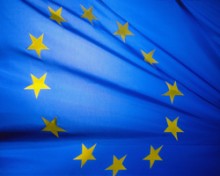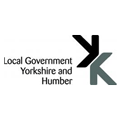News
EU Energy Efficiency Plan 2011

| Date | Thursday, March 10, 2011 |
|---|---|
| Topic | Economy Governance Energy, Waste & Natural Resources Environment Governance & Civic Participation Infrastructure |
On 8 March 2011, the European Commission adopted the Communication "Energy Efficiency Plan 2011" (pdf)
Energy efficiency is at the heart of the EU’s Europe 2020 Strategy for smart, sustainable and inclusive growth and of the transition to a resource efficient economy. Energy efficiency is one of the most cost effective ways to enhance security of energy supply, and to reduce emissions of greenhouse gases and other pollutants. In many ways, energy efficiency can be seen as Europe's biggest energy resource. This is why the Union has set itself a target for 2020 of saving 20% of its primary energy consumption compared to projections, and why this objective was identified in the Commission’s Communication on Energy 2020 as a key step towards achieving our long-term energy and climate goals.
Substantial steps have been taken towards this objective – notably in the appliances and buildings markets. Nonetheless, recent Commission estimates suggest that the EU is on course to achieve only half of the 20% objective. The EU needs to act now to get on track to achieve its target. Responding to the call of the European Council of 4 February 2011 to take 'determined action to tap the considerable potential for higher energy savings of buildings, transport and products and processes', the Commission has therefore developed this comprehensive new Energy Efficiency Plan.
For more information and downloads please visit http://ec.europa.eu/energy/efficiency/action_plan/action_plan_en.htm
You may have found us by using the following keywords: Our Climate, Climate Change Partnership, Climate Change, Regional, Adaptation Sub-Group, Adaptation, Local Authorities, Strategy and Monitoring, Built Environment, Transport, Health Services, Business, Land Management, Citizen Engagement, Energy, Waste, Water, Carbon, Flood risk, Mitigation, Leadership, Low Carbon Products, Low Carbon Services, Zero Carbon, Integrated Regional Strategy, Yorkshire and Humber Strategy, Climate Change Act, Regional Adaptation Study, Climate Change Plan for Yorkshire and Humber, Climate UK, Regional Coordinator, Low Carbon Economy, Bio-mass, Carbon Capture, Microgeneration, Local Area Climate Change Network, YoHr Space, Climate Change Board, Impacts, Vulnerability, Opportunities, CO2, NI188, NI186, NI185, NI187, Temperature, Rainfall, Extreme weather






